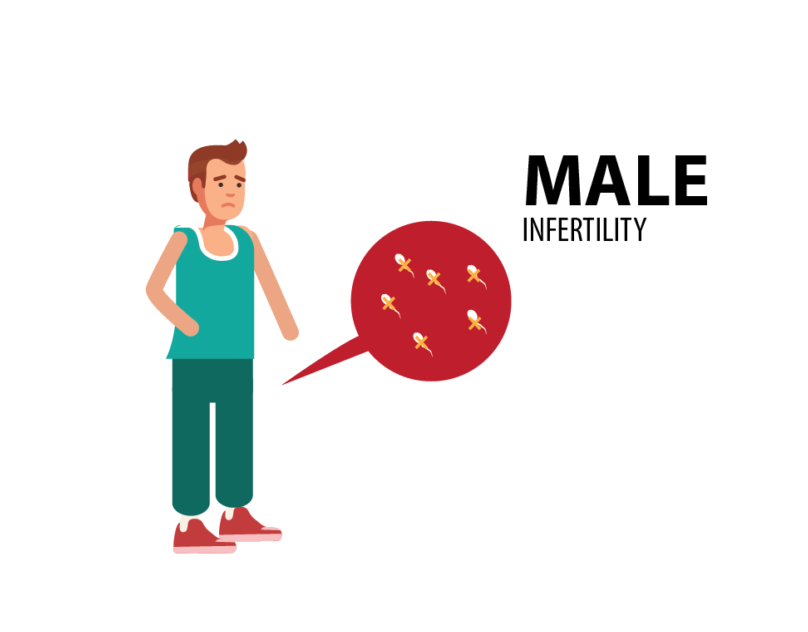
In recent years, discussions around fertility have expanded beyond the realm of female reproductive health to include male fertility as well. The misconception that fertility issues are solely a concern for women has been debunked, shedding light on the importance of understanding male fertility and its impact on conception. As we delve into this trending topic, let’s explore the intricacies of male fertility, common challenges faced by men, dispel some myths, and discuss potential solutions.
The Landscape of Male Fertility:
Male fertility refers to a man’s ability to impregnate a fertile female. While it takes two to tango, the focus on female fertility often overshadows male reproductive health. However, studies have shown that approximately one-third of infertility cases are attributed to male factors, one-third to female factors, and the remaining third to a combination of both or unknown causes.
Challenges Faced by Men:
Several factors can affect male fertility, ranging from lifestyle choices to underlying medical conditions. Some of the primary challenges include:
Low Sperm Count: One of the most common issues affecting male fertility is a low sperm count or oligospermia. This condition reduces the chances of successful fertilization due to a decreased number of sperm cells in the ejaculate.
Poor Sperm Motility: Even if sperm count is normal, poor sperm motility (asthenospermia) can hinder the sperm’s ability to reach and penetrate the egg for fertilization.
Abnormal Sperm Morphology: Sperm morphology refers to the size and shape of sperm cells. Abnormalities in morphology (teratospermia) can impact fertility by affecting sperm’s ability to move and penetrate the egg.
Erectile Dysfunction: Erectile dysfunction (ED) can hinder the ability to achieve or maintain an erection, making it difficult to engage in sexual intercourse and subsequently affecting fertility.
Varicocele: Varicocele is a condition characterized by the enlargement of veins within the scrotum. It can increase testicular temperature, leading to reduced sperm production and quality.
Hormonal Imbalances: Hormonal imbalances, such as low testosterone levels, can disrupt sperm production and overall reproductive function.
Dispelling Myths Surrounding Male Fertility:
Myth: Infertility is solely a female issue.
Fact: Male infertility is a prevalent concern, contributing significantly to couples’ difficulty in conceiving.
Myth: Age doesn’t affect male fertility.
Fact: Advanced paternal age can impact sperm quality and increase the risk of genetic abnormalities in offspring.
Myth: Tight underwear doesn’t affect fertility.
Fact: Tight-fitting underwear can increase scrotal temperature, which may negatively impact sperm production.
Myth: Masturbation causes infertility.
Fact: Masturbation, within normal limits, does not affect male fertility. It is a natural and healthy part of human sexuality.
Myth: Herbal supplements can cure male infertility.
Fact: While certain supplements may support overall reproductive health, they should not be viewed as a cure for infertility. Consulting a healthcare professional is essential.
Potential Solutions and Treatment Options:
Fortunately, advancements in reproductive medicine have opened doors to various treatment options for male infertility. Some of these include:
Lifestyle Modifications: Adopting a healthy lifestyle, including regular exercise, a balanced diet, avoiding tobacco and excessive alcohol consumption, and managing stress, can positively impact male fertility.
Medication: Depending on the underlying cause of infertility, certain medications may be prescribed to address hormonal imbalances, erectile dysfunction, or other issues affecting fertility.
Assisted Reproductive Technologies (ART): ART procedures such as in vitro fertilization (IVF), intracytoplasmic sperm injection (ICSI), and intrauterine insemination (IUI) can help couples overcome male infertility by directly addressing sperm-related issues.
Surgical Interventions: In cases where anatomical abnormalities such as varicocele are identified, surgical procedures may be recommended to correct the issue and improve fertility outcomes.
Genetic Counseling: In situations where genetic factors may be contributing to male infertility, genetic counseling can provide valuable insights into the risks and potential solutions.
Conclusion:
Male fertility is a multifaceted aspect of reproductive health that warrants attention and understanding. By acknowledging the challenges men face, dispelling myths, and exploring potential solutions and treatment options, we can empower individuals and couples on their journey towards parenthood. It’s crucial to approach male fertility with compassion, awareness, and a willingness to seek professional guidance when needed. Together, we can navigate the complexities of fertility and work towards creating a more inclusive dialogue surrounding reproductive health.






